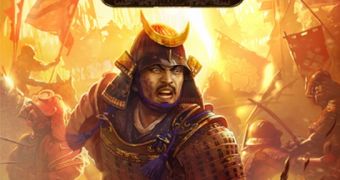Total War: Shogun 2 was a return to form for the venerable mix between turn based and real time strategy from The Creative Assembly and I loved playing it but I often found myself interested in resolving situations via a number of less violent means.
Paradox Interactive grants this wish in the new Japan themed grand strategy game Sengoku, which uses a structure similar to that of Crusader Kings to show off the variety of ways that political problems could be solved during the period when Daymio fought to dominate the country.
One way of dealing with rivals is hiring a ninja for some covert work, although this always carries the risk of discovery and failure, but there's always the possibility of assembling a serious military force and leading it against the castles of the rival.
Players can also create diplomatic alliances to reduce the power of a rival and keep him at bay, all done through networks of hostage exchange, but those are no guarantee that a secret plot is not growing somewhere that would make all previous agreements pretty much void.
The beauty of Sengoku is that most of the actions undertaken in the game are linked to characters, each with a number of statistics and a rudimentary personality.
At times it can feel like overkill but their presence makes pretty much all rivalries, all wars and all plots feel very personal, much more than in similar Paradox titles like Hearts of Iron III or Victoria II.
The developers have also managed to make a lot of improvements to the user interface of the grand strategy genre, delivering a lot of information in a very controlled manner and giving players the tools to quickly find provinces and characters.
Sengoku might be too much for a lot of players but it's an exciting game for those who have a love of history and a desire to change it, at least when it comes to Japan.
Here's a look at Sengoku in action:

 14 DAY TRIAL //
14 DAY TRIAL //